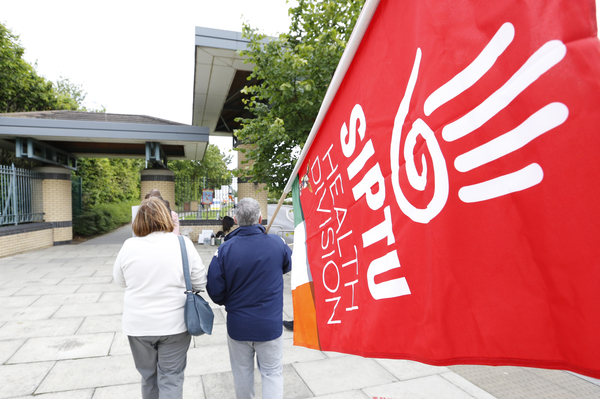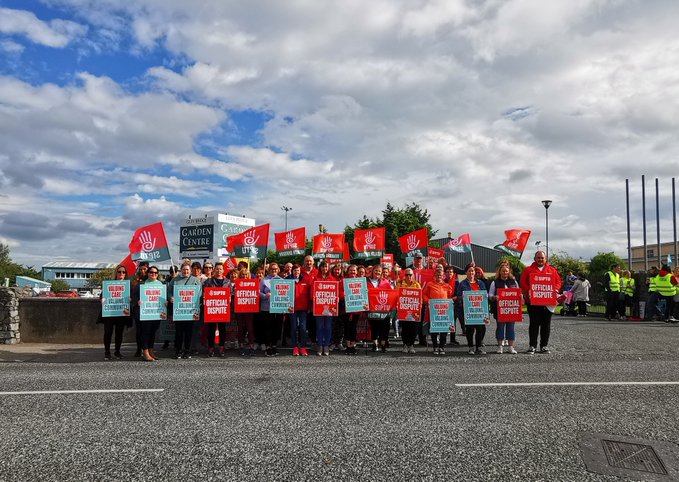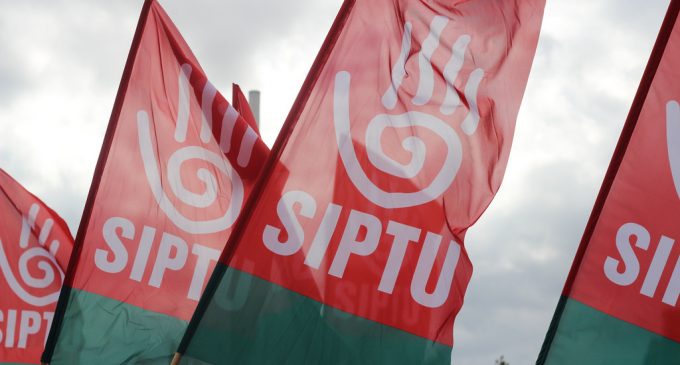The ICTU group of unions representing health and community workers, employed in community and voluntary sector agencies funded by the HSE and other state agencies, have announced today (Monday) that indefinite strike action, in several selected employments nationwide, is to commence from Tuesday 17th October next.
The union group, led by the Irish Congress of Trade Unions (ICTU), said the strike action will involve thousands of health and community workers in a variety of grades and in multiple locations, bringing services to a halt.
The decision to strike follows ballots carried out by Fórsa, the INMO and SIPTU. All three unions said ballot returns showed a high level of participation in the ballot, and overwhelming support for industrial action, up to and including strikes.
Workers in the following employments will take indefinite strike action from Tuesday 17th October:
Ardeen Cheshire Ireland
Ability West
Cheshire Ireland
Cheshire Dublin
Cheshire Home Newcastle West
Co-action West Cork
Cobh Hospital
Daughters Of Charity Child and Family Service
DePaul Ireland
Don Bosco Care
Enable Ireland (nationwide, including Cork, Tralee, East Coast and Midwest regions)
Family Resource Centres
Irish Wheelchair Association
Kerry Parents and Friends Association
St. Catherines Association Ltd
St. Josephs Foundation
St. Lukes Nursing Home
Trinity Community Care
Western Care Association
The ballot for industrial action took place following the breakdown of WRC talks in July and follows years of pay disparity between these workers and their counterparts employed directly by the state.
While these agencies are largely state-funded, workers employed in a range of health professional, clinical, clerical and administrative grades, are on lesser terms and conditions than their HSE counterparts. The pay differential is in excess of 10%.
ICTU general secretary Owen Reidy said the strike action is an inevitable consequence of the failure of the Government to address a serious and growing problem with how the agencies are funded, and a recruitment and retention crisis in vital services: “Workers in the sector now have chosen to take action because the State, as the chief funding body for these services, has failed to grasp the seriousness of the staffing crisis in this sector,” he said.
SIPTU Health division official Kevin Figgis said: “The decision to strike clearly demonstrates the level of frustration our members feel at the dysfunctional way in which parts of the community healthcare system is funded.
“Our members involved in this dispute provide essential health services on behalf of the State. Should voluntary providers continue to have recruitment and retention issues, and are no longer able to provide these services, there will be an obligation on the HSE to step in and provide them directly.
“These services will need to be appropriately funded. Pay parity with the public service is necessary to ensure the provision of vital public services to vulnerable people in our communities. It’s an acknowledged fact that the current funding model is unsustainable and will need to be resolved to secure the future of these services,” he said.
Fórsa Health and Welfare official Ashley Connolly said: “This is the action of last resort, and it has been a difficult decision for these workers, but they’ve been left with no more options.
“The Government has been dragging its feet on the issue for years, while making conciliatory noises to health workers who urgently need pay improvements. Their colleagues are walking out the door for better terms elsewhere, and waiting lists for the services these agencies offer continue to grow as a result.
“There’s a yawning pay gap of more than 10%. Services cannot be sustained as long as that continues,“ she said.
INMO official Albert Murphy said: “Nurses in the community and voluntary sector provide essential services to some of the most vulnerable people in society. They have not been afforded the same level of pay increases as their colleagues in the HSE, which is exacerbating a recruitment and retention crisis in the sector.
“Nurses in the sector are now facing into another winter with rising household costs, yet their salaries remain stagnant.
“The Government cannot continue to bury its head in the sand over the very real issues at the heart of this dispute. It’s hard for our members to take that while the exchequer has enjoyed record returns, and the state continues to deny vital pay improvements to thousands of workers in this vital health sector.”
SIPTU Public Administration and Community division official Karan O’Loughlin added: “Our members have opted to take action as the wage cuts, unilaterally imposed more than a decade ago, have been reversed all over the economy while our members have been left behind. It’s unacceptable.
“Government inaction and delay has only served to put these vital community services at risk and leave our members to feel as though they have no option to withdraw their labour,” she said.






